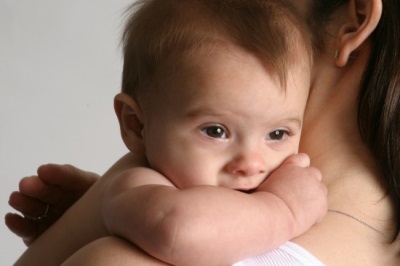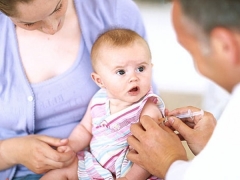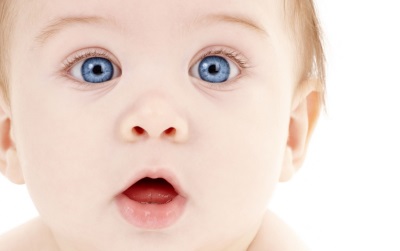Do I need to vaccinate a child?
Modern parents often have doubts about the vaccines offered by doctors. Let's understand whether vaccination is so necessary, what are the drawbacks of vaccinations and whether everyone needs to put them.
Pros and some statistics
- All diseases that seek to be prevented with vaccines are very dangerous for young children. The hepatitis B virus, once in the body crumbs in infancy, will remain there for life, causing damage to the liver tissue. Putting crumbs in the BCG maternity hospital will protect your child from severe forms of tuberculosis. Infections such as tetanus, whooping cough, measles, poliomyelitis, hemophilic infection, and others, pose a great danger in childhood. For example, mortality from tetanus is over 80%.
- By refusing to vaccinate children, parents increase the risk of epidemics of dangerous diseases in the future.
- The impact of vaccination on the development of autism was studied by a 2005 study, which took into account data about 100 thousand vaccinated children. It did not reveal a link between vaccines and the disease.
- The percentage of complications after vaccination is many times less what is the percentage of complications of the disease if the child is not vaccinated.
Arguments against
Parents who oppose vaccinations usually have many reasons, most of which are only partially correct:
- Vaccinations have a negative effect on the child’s immune system. Immediately after vaccination, the baby becomes more vulnerable to diseases that an unvaccinated child might not have developed. This is true, but the weakening is only temporary.
- The vaccine does not protect against the disease, which is directed to the pathogen, by 100%. Although the presence of partial protection is still better than no protection at all. When a vaccinated child gets infected, its disease is easier and practically does not give complications.
- A child who receives breast milk is protected from infections, so you should not stress his immune system in the first year of life. Indeed, with mother's milk, antibodies are transmitted to the infant and during the first months are good protection against infection for babies, but already at 3 months of age their concentration decreases and the child becomes vulnerable to bacteria and viruses.
- Each vaccine contains toxic preservative substances that adversely affect the baby's body. It should be noted that vaccines are constantly improving and the concentration of such substances is reduced. In addition, if the child gets sick, he will have to take medications, which can also be toxic to the kidneys and baby liver.
- There are no completely safe vaccines, each of them can cause allergies, brain damage and even death. This is true, but the vaccine diseases most often lead to disability and death; in the case of vaccination, these are only exceptions to the rules.

Opinion E. Komarovsky
The famous pediatrician assures that vaccination is very important.He recalls that all diseases from which the modern child is vaccinated continue to be detected by doctors and threaten both the health of children and their lives. It is precisely because parents need to think carefully about whether to deprive their children of protection against those dangerous diseases, which are immunized against pathogens from the national calendar.
Do all children need to be vaccinated?
If the child is completely healthy, vaccinations will undoubtedly benefit him. However, there are situations where vaccination is either postponed or canceled. Therefore, they do not vaccinate:
- A child with any acute illness and a worsened general condition.
- Baby, which has worsened chronic pathology.
- Children who have pronounced reactions to previous vaccine administration.
- Infants with immunodeficiencies, severe anemia or oncopathology.
In addition, hepatitis B vaccination should not be given to children who are allergic to yeast, measles or flu vaccine - to a child who is allergic to egg white proteins, and rubella and measles vaccination - to children who are allergic to aminoglycosides. Premature babies are not given BCG, and the DPT vaccine should not be given to babies with neurological diseases.

Admission to kindergarten
Only parents can decide whether to vaccinate their baby or not. All vaccinations provided for in the national calendar are carried out only on a voluntary basis, that is, after parental consent.
Since 1998, the opportunity to refuse vaccination was enshrined in law, for this you need to write vaccination refusal. At the same time, in practice, getting into the garden without vaccinations is very difficult.
Parents who are trying to arrange an unvaccinated child in kindergarten may face a refusal to sign a medical card at the clinic from the medical staff and accept the card in the kindergarten from the head. This is a violation of their child’s right to learn, so you can fight him. Ask for a written confirmation of the refusal of the child to enter the garden. Usually, after this problem disappears.
However, if you are going to donate a baby to an institution without being vaccinated, you should not forget that you are responsible for his health yourself.










